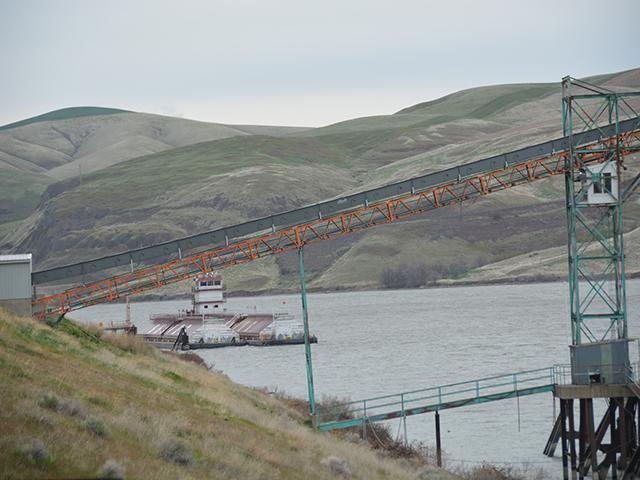Ag Policy Blog
NGFA Warns About Plans to Breach Snake River Dams
The National Grain and Feed Association on Friday raised concerns that a $1 billion conservation plan and settlement from the Biden administration to deal with salmon in the Columbia and Snake river system is an eventual setup to remove four navigational dams on the Lower Snake River.
The $1 billion, provided in a court settlement with Oregon and Washington tribes, will be used to look at how to deal with the loss of hydropower and navigation on the river system should Congress ever make the call to remove the dams.
The four dams -- Ice Harbor, Lower Monumental, Little Goose and Lower Monumental -- are upriver from the convergence of the Snake and Columbia rivers at Richland, Wash. The dams provide roughly 3,000 megawatts of hydropower as well as support shipments from 13 grain elevators along the Snake River. The dams support about 100 million bushels of wheat exports out of the Pacific Northwest.
For farmers, the dams typically provide 40 cents to 60 cents of positive basis on wheat.
But the dams are considered as a key reason for the decline of salmon runs, which are threatening the salmon and violating agreements between the federal government and tribes to protect the fishing rights.
The National Grain and Feed Association declared its opposition to the Columbia-Snake conservation plan or any proposal to breach the dams. The group pointed to the ripple effects and impacts on grain exports.
"Barges are the most environmentally friendly mode of transportation for grains and oilseeds with one four-barge tow moving as much grain as 140 rail cars or 538 semi-trucks," NGFA stated. "Removing the Lower Snake River dams would hurt producers and negatively impact the operations and livelihoods of NGFA members and their employees who have made investment decisions based on the ability to utilize barge transportation. Studies have been completed that show the significant, negative impact that would occur in the Pacific Northwest. In addition to the impact on agriculture in the PNW and throughout much of the western and northern United States, reduced exports could also impact global food security."
NGFA added, "Agricultural stakeholders have been ready and willing to share these insights throughout the mediation process. As major stakeholders in this decision, NGFA members hope the agricultural industry is included in any study that is conducted or proposed as a result of this announcement."
USDA Wants Input on Foreign Ag Land
P[L1] D[0x0] M[300x250] OOP[F] ADUNIT[] T[]
USDA issued a request for public input on how foreign owners file agricultural land holdings in the U.S. Following a great deal of congressional, state and public attention about foreign-land holdings, the Farm Service Agency is proposing to update the Agricultural Foreign Investment Disclosure Act reporting form.
Under the proposal, USDA would expanding reporting to "include data on long-term lessees, data to assess the impacts of foreign investment on agricultural producers and rural communities, and to gather geospatial information."
"USDA seeks to improve the information that we are collecting about foreign ownership and leasing of U.S. agricultural land," said Under Secretary for Farm Production and Conservation Robert Bonnie. "This process, which includes public input on changes to the form, will lead to more insightful reporting to Congress and the public."
Producers or other interested parties have until Feb. 16, 2024 to offer their recommendations.
The public can submit input through the Federal eRulemaking portal, docket FSA-2023-0017. All comments will be posted without change and will be publicly available on www.regulations.gov
The proposed revisions to the FSA-153 Agricultural Foreign Investment Disclosure Act (AFIDA) Report form will:
-Capture additional data on long-term lessees who are required to report their transactions to USDA.
-Propose to collect data to assess the impacts of foreign investment on producers and rural communities, as required by AFIDA.
-Ask filers to voluntarily provide data that will help identify their land locations geospatially.
The annual USDA report on foreign land holdings can be found at https://www.fsa.usda.gov/…
Chris Clayton can be reached at Chris.Clayton@dtn.com
Follow him on X, formerly known as Twitter, @ChrisClaytonDTN
(c) Copyright 2023 DTN, LLC. All rights reserved.






Comments
To comment, please Log In or Join our Community .